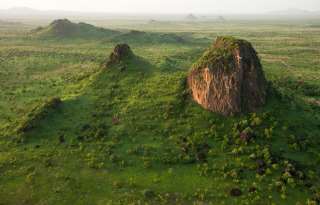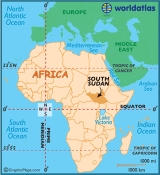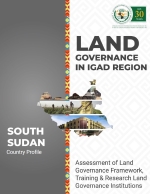|
|
|
Industry and infrastructure in landlocked South Sudan are severely underdeveloped and poverty is widespread, following several decades of civil war with Sudan. Continued fighting within the new nation is disrupting what remains of the economy. The vast majority of the population is dependent on subsistence agriculture and humanitarian assistance. Property rights are insecure and price signals are weak, because markets are not well-organized.
Profiles
South Sudan is still haunted by the laws formulated before its secession such as the Unregistered Land Law of 1970. In essence, that law provided that all land that is not registered shall be owned by the state/government. This law went against the interest of the South as all the rural land is not registered and so it would, by that law, be taken over by the state. Under the Transitional Constitution of the Republic of South Sudan 2011, the people of South Sudan own all the country's land and its usage is regulated by the government in accordance with the Constitution and Law. The applicable law in this case is the Land Act of 2009.
Read More on folder Profiles...




